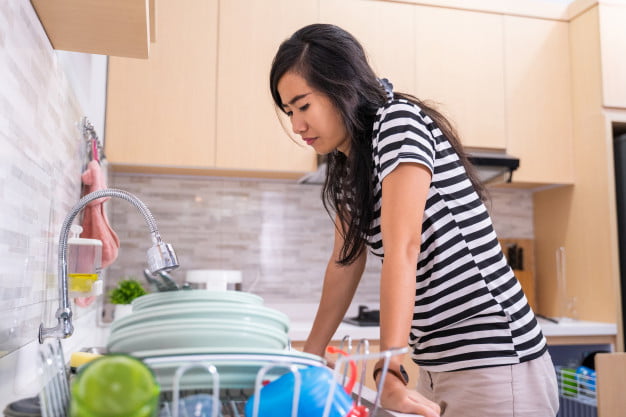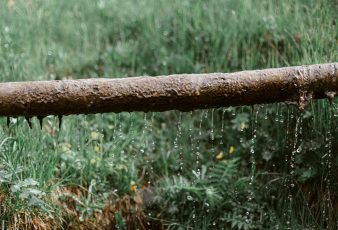The kitchen sink is one of the most used utilities in any home. When there is a problem with your kitchen sink, all normal kitchen activities can be halted, or at the very least, frustrated. It is important for homeowners to know how to troubleshoot simple kitchen sink problems. It is also important to know when it’s time to call in a professional like Lex’s plumbing.
Troubleshooting Kitchen Sink Problems
Put together by emergency plumbers in Dallas, we offer some tips for how you can troubleshoot kitchen sink problems. When in doubt, call a plumbing professional to make sure you avoid damage to your home.
Low Water Pressure

Low water pressure in your kitchen sink can be incredibly frustrating. Often, low water pressure has more to do with your faucet than your pipes. The first step to troubleshooting low water pressure is to remove the aerator and clean out the small holes. The aerator is the small screen that is inside the faucet. To clean it, place it in white vinegar for around six hours. Once you put it back on, you should notice an improvement in your water pressure.
If cleaning the aerator doesn’t fix the problem, you may want to have a professional take a look.
A Leak Under the Cabinets
Kitchen faucet leaks are very common. You may notice some dripping under your kitchen cabinet. Of course, you want to find the source of the leak and make sure it doesn’t damage your cabinets or floors. First, check to see if the water is leaking from the base of the faucet, or if it seems like it is coming from a pipe. Sometimes, there is a damaged seal, or there may be a damaged slip joint nut (the part that connects two pieces of pipe together).
If you can’t tell where the water is coming from, or it looks like your pipes are worn out, it may be time to call in a professional before the leak does any damage.
Clogged Kitchen Sink
Every kitchen sink has what is called a “p-trap”. This refers to the pipes under the sink that resemble the letter P. The p-trap keeps sewer gasses and odors from entering your home through the kitchen sink. It works thanks to gravity. Unfortunately, the p-trap can get clogged up with grease, soap, and other debris. This can lead to your kitchen sink draining slowly or even backing up.
You can clean the p-trap by removing the slip nuts with a pair of channel locks. Make sure you have a bucket handy to catch any water or debris that is trapped inside. If once that is cleaned out, you still have slow drains, you may have a leak further down in your pipes. If you suspect that is the case, call a plumber before attempting to take any other pipes apart.
Why You Should Call a Professional Plumber for Kitchen Sink Problems
Sometimes, a problem with your kitchen sink is as simple as a loose-fitting or a clog. Other times, however, your clogged drain or leak is a sign of a more serious plumbing problem. That’s why it is a good idea to call a professional plumber if you have a problem that you can’t find or diagnose on your own. Plumbing problems can become expensive and damaging to your home quickly if they are not properly fixed.
Read Also:




























